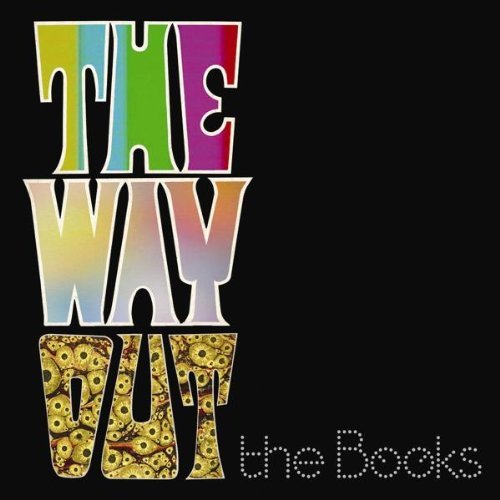When a group goes on hiatus for more than a year to concentrate on the inevitable “next album,” not to mention their personal lives, the results of the next full-length recording tend to vary. Metallica, notoriously taking a break after their massive world touring for The Black Album, returned to crap on their fan base with pure corporate dreck in the form of Load. On the other end of the spectrum, My Bloody Valentine spent three years on the development of Loveless, which changed the pop/rock landscape with waves still being felt in this decade, and forever giving the band a massive indie cult status for their artistic vision. The Books spent five years between their last album Lost and Safe and their current one, The Way Out. Fans can rest easy though. This is easily the most accomplished, focused and forward album in the Books’ career, and maybe even the 2000s.
What makes this album so astounding is of course, the Books’ playful incorporation of their love of the avant-garde with the pop form. The disembodied voices pulled from found sound sources are, like in Lost and Safe, front and center and used as delivering the content of the pieces instead of the voices of Nick and Paul but this time taken to a whole new level. As opposed to Lost and Safe, there are only four actual “songs” in the regular sense of the word, whereas before there was a mixture of the voices of the performers and the cut-up samples. Despite this change, this still accomplishes the Books’ goal of creating new frontiers, both in music/sound and on a deep, spiritual level. In the past the Books had tapped into a kind of folk sound, which for better or worse was initially thought of to be “folktronica.” But what it really was and still is what makes the Books so exciting, so individual and yet so all-encompassing, is that their “folk” is tapping into one of the oldest traditions of the United States as an idea. This idea being that in addition to the large, physical frontier, there are smaller, hidden frontiers. The cut-up vocals, reminding one of the audio cut-up experiments of Brion Gyson and William S. Burroughs, have been rearranged from their original sources to create these frontiers the Books want the listener to explore, to revisit the sense of child-like discovery (in the case of “A Cold Freezin’ Night”), or to throw off the ego and to enter an unconscious state (“Group Autogenics I,” placed strategically as the first track of the album). Either way, this use of the aleatoric cut-up technique put the listener in touch in everything they know and do not know that they know.
Nick Zammuto and Paul de Jong know though at this would be a tough pill to swallow if not presented in the form of the pop song, and The Way Out is a pop album, and an incredibly diverse one at that. “I Didn’t Know That” is dense with sampled congas and other percussive sounds, as well as basslines being executed in an near-funky fashion that the body wants to respond to. “Beautiful People” and “I Am Who I Am,” as well as the aforementioned “A Cold Freezin’ Night” are set to thumping 4/4 rhythms that definitely make you start head-bobbing in a trance-induced state. Last but not least, there’s “The Story of Hip-Hop,” which would remind die-hard fans of the band’s 2005 collaboration with abstract hip-hop producer Prefuse 73, with its broken shuffle and synth tones. All of this danceable material reminds one of a previous album that bridged the divide of avant-garde and pop music, David Byrne’s and Brian Eno’s My Life in the Bush of Ghosts. But The Way Out much more warmer and inviting, not to mention more bent on delivering on the Books’ fun, almost goofy sense of surprise and wonder.
Once you make it to the end of the final piece “Group Autogenics II,” when the last sampled voice from a hypnotherapy tape with its soft femininity tells you that “you’re becoming the world and everyone in it,” you realize that this is what happened when you listened to this album from beginning to end. This is because despite their experimental backgrounds, the duo that is Nick and Paul are human, and thus their music is human, and all the ideas that arise and are questioned and dissected by their music are all deeply fundamental to what make us human. Since the last Books album, many events happened that rocked the human psyche (the most repercussive being the near-collapse of the economy across the world), which have in a sense made us disconnect from what it is that makes us human. Thus, The Way Out is, in a sense, an actual way out of this destructive cycle created by outside forces, by showing us that there’s a way back in to what is inside all of us and connects us as human beings, with a love of life and joy.


